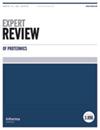The interdependence of machine learning and LC-MS approaches for an unbiased understanding of the cellular immunopeptidome
IF 3.8
3区 生物学
Q1 BIOCHEMICAL RESEARCH METHODS
引用次数: 3
Abstract
ABSTRACT Introduction The comprehensive collection of peptides presented by major histocompatibility complex (MHC) molecules on the cell surface is collectively known as the immunopeptidome. The analysis and interpretation of such data sets holds great promise for furthering our understanding of basic immunology and adaptive immune activation and regulation, and for direct rational discovery of T cell antigens and the design of T-cell-based therapeutics and vaccines. These applications are, however, challenged by the complex nature of immunopeptidome data. Areas covered Here, we describe the benefits and shortcomings of applying liquid chromatography-tandem mass spectrometry (MS) to obtain large-scale immunopeptidome data sets and illustrate how the accurate analysis and optimal interpretation of such data is reliant on the availability of refined and highly optimized machine learning approaches. Expert opinion Further, we demonstrate how the accuracy of immunoinformatics prediction methods within the field of MHC antigen presentation has benefited greatly from the availability of MS-immunopeptidomics data, and exemplify how optimal antigen discovery is best performed in a synergistic combination of MS experiments and such in silico models trained on large-scale immunopeptidomics data.机器学习和LC-MS方法的相互依赖,以公正地理解细胞免疫肽穹窿
由主要组织相容性复合体(MHC)分子在细胞表面呈现的肽的综合集合统称为免疫肽穹窿。对这些数据集的分析和解释对于进一步了解基本免疫学和适应性免疫激活和调节,以及直接合理地发现T细胞抗原和设计基于T细胞的疗法和疫苗具有很大的希望。然而,这些应用受到免疫肽球数据复杂性的挑战。在这里,我们描述了应用液相色谱-串联质谱(MS)获得大规模免疫肽球数据集的优点和缺点,并说明了这些数据的准确分析和最佳解释如何依赖于精炼和高度优化的机器学习方法的可用性。此外,我们展示了免疫信息学预测方法在MHC抗原提呈领域的准确性如何从MS免疫肽组学数据的可用性中受益匪浅,并举例说明了如何在MS实验和大规模免疫肽组学数据训练的计算机模型的协同结合中最好地进行最佳抗原发现。
本文章由计算机程序翻译,如有差异,请以英文原文为准。
求助全文
约1分钟内获得全文
求助全文
来源期刊

Expert Review of Proteomics
生物-生化研究方法
CiteScore
7.60
自引率
0.00%
发文量
20
审稿时长
6-12 weeks
期刊介绍:
Expert Review of Proteomics (ISSN 1478-9450) seeks to collect together technologies, methods and discoveries from the field of proteomics to advance scientific understanding of the many varied roles protein expression plays in human health and disease.
The journal coverage includes, but is not limited to, overviews of specific technological advances in the development of protein arrays, interaction maps, data archives and biological assays, performance of new technologies and prospects for future drug discovery.
The journal adopts the unique Expert Review article format, offering a complete overview of current thinking in a key technology area, research or clinical practice, augmented by the following sections:
Expert Opinion - a personal view on the most effective or promising strategies and a clear perspective of future prospects within a realistic timescale
Article highlights - an executive summary cutting to the author''s most critical points.
 求助内容:
求助内容: 应助结果提醒方式:
应助结果提醒方式:


